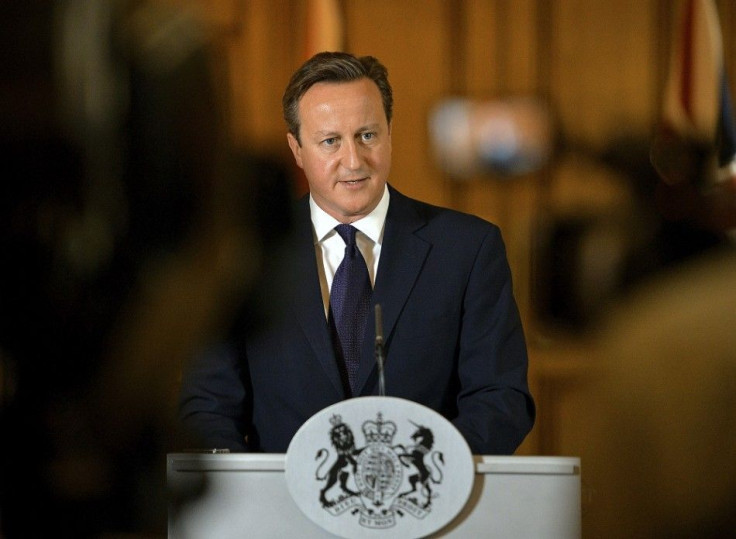Britain Defies European Union: Cameron Refuses To Pay 2 Billion Euro To EU Budget

The EU Summit in Brussels ended in a row with British Prime Minister David Cameron announcing the U.K's refusal to pay a 2-billion euro bill. Cameron even took potshots at the EU Commission while telling media persons that "thumping a bill of 2 billion euros three weeks before you have to pay is not an acceptable way of behaviour".
The EU request for additional funds from Britain followed a change in accounting rules. It also factored in Britain's economy doing better than others and its ability to pay more money to the bloc's budget, reports Euro News.
Raise Investment
On the internal deliberations within the Summit, the highlight was the clarion call made by European Union's top economic official. Reminding all states that the engulfing economic paralysis of eurozone can only be overcome by higher investments, Jyrki Katainen, the European commissioner, called on Germany and other industrialised states to pump more investment to escape a bleak future of stagnation. "All euro area countries have shortages in potential growth, including Germany," he reminded
At the summit, European Union leaders had opposing positions on economic austerity, with France and Italy resisting the pressure from the EU bloc's budget hawks who want to cut their deficits and bring down spending, reported Wall Street Journal.
French President Francois Hollande sought flexibility in budgeting and said Europe should not give the impression that there were "good and bad students" while promising to work on meeting EU budget rules. German Chancellor Merkel countered France and Italy by reminding them that no country with a national debt greater than its economic output should borrow more.
Positive Factors
Amidst voices of frustration, Ms Merkel projected the positives available in Europe. One is the record-low interest rates in the euro zone as "room to breathe" and making use of an opportunity by mixing private investment, fiscal discipline and openness to Asian economies as the way forward. She also said the proposed FTA with the United States, even if unpopular in Europe, can be crucial.
Ms Merkel clearly blunted the theory put forward by Italy and France for a deficit budget to bring better growth. She told them that bigger deficits will not fix Europe's growth problem and "we have had times in Europe of big deficits and no growth happened". But Paris and Rome, facing the rise of anti-EU political parties, see the EU budget rules as foolish and fear it would only deepen the region's economic woes if more budget cuts are to be effected. But they are also afraid of EU stick on violating budget rules, with Brussels poised to make a deadline next week for an initial ruling.
Budget Reprimand
The European Commission specifically warned Italy that its budget plans for 2015 would violate the EU fiscal rules and asked for further explanation. The commission also delivered similar warnings to France and a few other governments in a sign that Brussels will be ruthless on all budget violators. Clearly, EU's budget rules have become a flash point after it sent letters to France, Italy, Austria, Slovenia and Malta .






